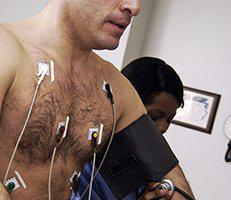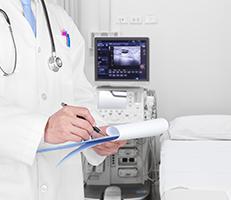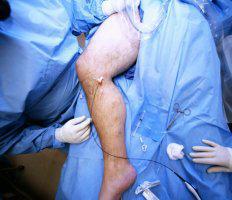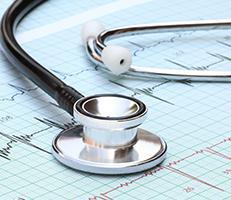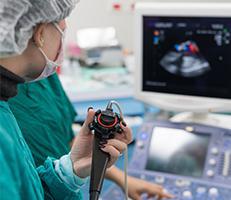What is nuclear medicine?
Nuclear medicine refers to a number of radiology techniques used to evaluate the health and function of your organs. It consists of diagnostic scans and therapies that use small amounts of radioactive materials.
Nuclear medicine can identify and treat conditions like heart disease, gastrointestinal disorders, and certain types of cancer.
What are nuclear medicine scans?
A nuclear medicine scan is an imaging scan that uses radioactive materials and radiation detectors to evaluate the health and function of soft tissue structures.
Nuclear medicine scans are used to evaluate a number of areas like the thyroid gland, heart, brain, lungs, and breast. There are a number of different types of nuclear medicine scans, including:
- Positron emission tomography (PET) scans
- Single-photon emission computed tomography (SPECT) scans
Conventional imaging tests like X-rays pass through soft tissue, making it difficult to evaluate structures like intestines, muscles, and blood vessels. Nuclear medicine scans allow for better visualization of soft tissue structures.
To perform your scan, your ECCA doctor administers a small amount of radioactive material, typically through intravenous injection, but can also use inhalation, oral medication, or an injection directly into the examination area.
Once absorbed, the radioactive material causes the area under examination to emit a small amount of radiation energy. A radiation detecting camera is used to obtain images of a structure and record details of its function.
Nuclear medicine scans are outpatient procedures. They require no anesthesia or downtime and, depending on your tolerance of injections, are painless.
After the test, you can return to your normal activities. Your results are used to determine your diagnosis and guide treatment decisions. Nuclear medicine scans provide the most useful information for addressing a wide range of conditions.
What are nuclear medicine therapies?
In addition to diagnostics, nuclear medicine at ECCA is also used to treat a number of conditions. Radioactive iodine therapy is a common technique to treat hyperthyroidism and thyroid cancer.
Nuclear medicine is also used to treat cancers of the lymphatic system, blood disorders, and different types of tumors. Nuclear medicine therapies deliver safe amounts of radiation to destroy damaged or cancerous cells.
To speak with a doctor about nuclear medicine scans or therapy, call ECCA or book an appointment online.





